Proceedings of the 4th World Congress
on Electrical Engineering and Computer Systems and Science (EECSS'18)
AUGUST 21 - 23, 2018 | MADRID, SPAIN
The keynote information for the 4th World Congress on Electrical Engineering and Computer Systems and Science (EECSS'18) is as follows:
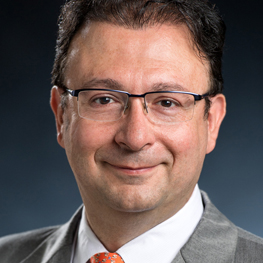
Dr. Luigi Benedicenti
University of Regina, Canada
CIST'18 Keynote Speaker
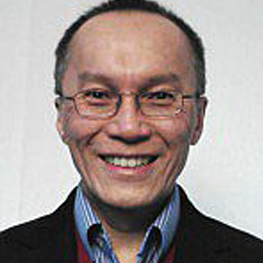
Dr. Peter Cheng
University of Sussex, UK
MHCI'18 Keynote Speaker
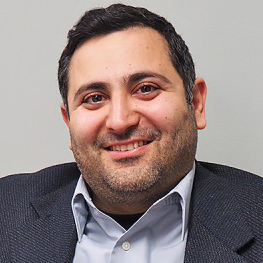
Dr. Ziad Kobti
University of Windsor, Canada
CIST'18 Keynote Speaker
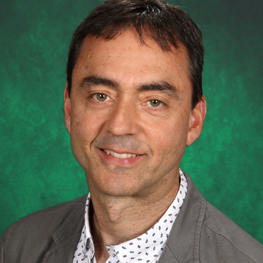
Dr. Robert Laganière
University of Ottawa, Canada
MVML'18 Keynote Speaker

Dr. Zheng Liu
University of British Columbia, Canada
MVML'18 Keynote Speaker
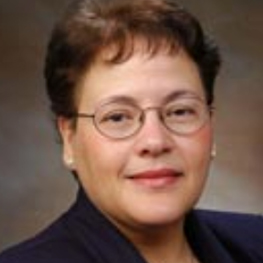
Dr. Dalila Megherbi
University of Massachusetts, Lowell, USA
MVML'18 Keynote Speaker
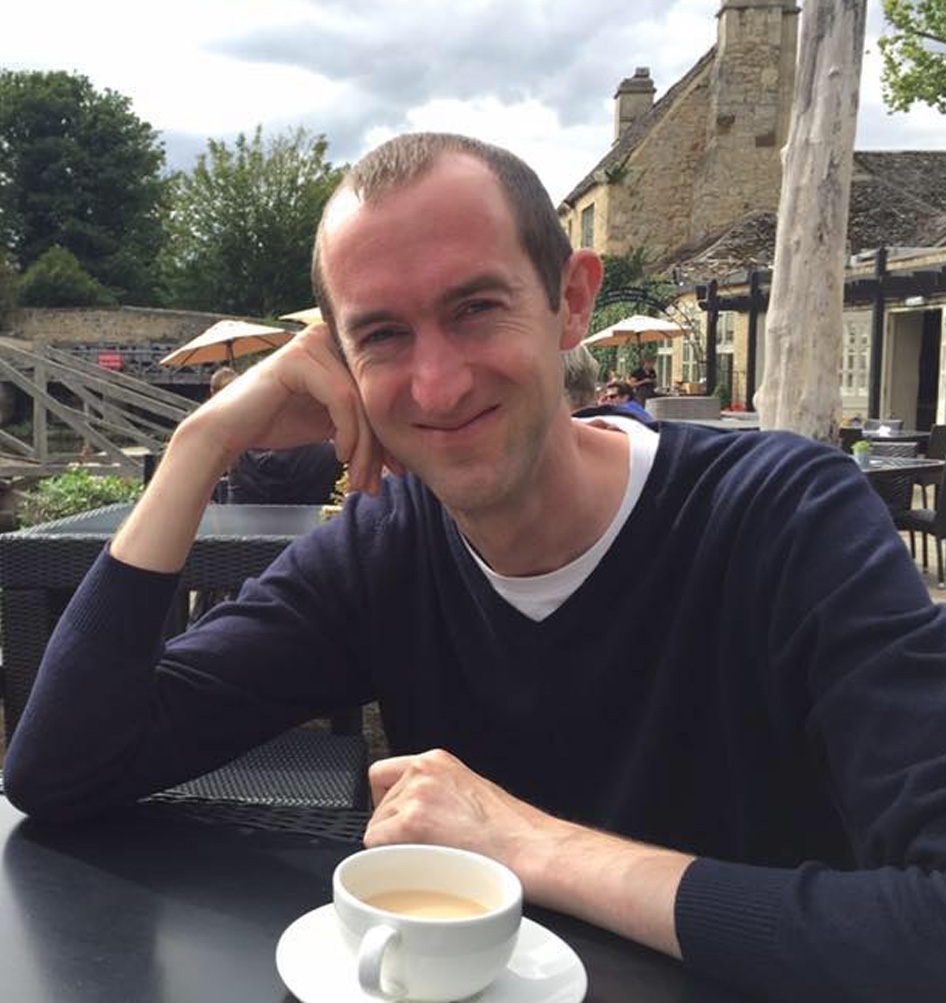
Dr. Stephen Payne
University of Oxford, UK
ICBES'18 Keynote Speaker
MVML'18 Keynote Speakers

Dr. Zheng Liu
University of British Columbia, Canada
MVML'18 Keynote Speaker
Dr. Zheng Liu received his first doctorate in engineering from Kyoto University (Japan) in 2000 and earned a second Ph.D. in electrical engineering from the University of Ottawa in 2007. From 2000 to 2001, he was a research fellow with the control and instrumentation division of Nanyang Technological University, Singapore. He joined the Institute for Aerospace Research of National Research Council Canada (NRCC, Ottawa) as an NSERC governmental laboratory visiting fellow in 2001. From 2002 to 2012, he served as a research officer for NRCC. From 2012 to 2015, Dr. Liu worked for the Toyota Technological Institute (Nagoya, Japan) as a full professor. In 2015 fall, he returned to Canada and joined the University of British Columbia Okanagan and established the “Intelligent Sensing, Diagnostics, and Prognostics Research Lab.” He is currently an associate professor at the School of Engineering.
Dr. Liu is serving the editorial boards for five peer-reviewed journals, including IEEE Transactions on Instrumentation and Measurement, IEEE Instrumentation and Measurement Magazine, Information Fusion, Machine Vision and Applications, and Intelligent Industrial Systems. He also served as a reviewer for numerous funding agencies, journals, conferences, and publishers. He is a senior member of IEEE and member of SPIE and holds the professional engineer license in both British Columbia and Ontario.
Dr. Liu’s research focuses on data/information fusion, computer vision, machine learning, sensor techniques, structural health monitoring, non-destructive inspection, and prognostic health management. He received three best conference paper awards and participated numerous research projects with government agencies, industries, academic units, and research organizations.
Topic of Keynote:
Information Fusion for Environmental Perception and Situation Awareness

Dr. Dalila Megherbi
University of Massachusetts, Lowell, USA
MVML Keynote Speaker
Dr. Dalila B. Megherbi received the Sc.M in Electrical and Computer Engineering, the Sc.M in Applied Mathematics, and the Ph.D in Electrical and Computer Engineering from Brown University, Providence, RI, USA. Dr. Megherbi is a faculty of Electrical and Computer Engineering at the University of Massachusetts, Lowell. She is the founder and Director of the research Center for Computer Machine/Human Intelligence Networking and Distributed Systems (CMINDS). Her research is internationally recognized. Since joining UMass Lowell, Dr. Megherbi holds more than 110 refereed peer-reviewed publication articles, including in the IEEE and the prestigious Nature Biotechnology (impact factor 41.667). She holds US patent. At UMass Lowell, she has been the recipient of numerous research grants and contracts, as the primary lead principal investigator, from several federal agencies and the industry, including, DoD AFRL/WPAB, NSF, US FDA, NIH, Raytheon Air Missile Defense Systems, Xilinx Inc., Structural Dynamics Research Corporation, SUN Microsystems, Altera Inc., and Sky Computers Inc. She graduated more than 30 graduate students Ph.D. and MS students with a thesis option. She serves as associate editor and member of the editorial boards and reviewer for a dozen of journals, including IEEE transactions. She has been invited to organize/TPC/session chair, and to speak at several national and international conferences. She has been invited to serve on national and international peer review boards including, NSF, NIH, NASA, and National Science Foundation of Ireland. She has been the recipient of several research and teaching awards, including the recipient of the Best Paper Award of all conference tracks at the IEEE International Conference on Homeland Security, the recipient of the IEEE Control Systems Society CDC Best Paper Finalist Award, the recipient of the Best Paper Award at the IEEE international conference ROMA, the recipient of the Top Professor Award for Outstanding Academic Integrity Leadership and Service to the students, the recipient of several university of Massachusetts Lowell Outstanding Teaching Excellence Awards, the recipient, each year since this recognition award was initiated in 2010, of 6 UMass Lowell Annual Research and Scholarship Recognition Awards, in recognition of faculty with extensive scholarship during that year. She has been a member of an international project consortium led by the US FDA. She was invited, interviewed and quoted in the New York Times for her expertise in big data facial recognition for homeland security applications. She was contacted by major national and international news agencies for her work and expertise in big data and facial recognition for homeland security. She was invited, interviewed and featured by the Science News Radio Network for her expertise in Artificial Intelligence and Big Data technologies applied to Weapons of Mass Destruction. Her primary current research interests are in computational machine vision and intelligence, deep learning, “Big data” analytics, knowledge extraction/representation, and adaptive learning systems in distributed computing systems and networks, with applications to homeland security and the life sciences (high throughput meta-genomics). Her main research goal is the understanding of and building sensor-based machines that can be made to exhibit intelligence. The idea is to build intelligent machines/sensors and to understand certain aspects of human and animal biological intelligence.
Topic of Keynote:
Machine Learning Based Analysis of the Effects of Image Transformation and Partial Information on Face Recognition with Time-Varying Expressions for Homeland Security Applications.

Dr. Robert Laganière
University of Ottawa, Canada
MVML Keynote Speaker
Robert Laganière is a professor at the School of Electrical Engineering and Computer Science of the University of Ottawa. He is also a Faculty member of the VIVA research lab and is the co-author of several scientific publications and patents in content-based video analysis, visual surveillance, driver-assistance, object detection and tracking. Robert authored the OpenCV Computer Vision Application Programming Cookbook (Packt pub. 3rd ed. 2017) and co-authored Object Oriented Software Development (McGraw Hill 2001). He co-founded Visual Cortek in 2006, an Ottawa-based video analytics startup that was later acquired in 2009 by iWatchLife.com, a cloud-based video monitoring company. He is also a consultant in computer vision and has been Chief Scientist in a number of startups companies such as Cognivue Corp, an embedded vision semiconductors company acquired by NXP in 2016. In 2016, Robert founded Tempo Analytics, a startup company proposing retail analytics solutions. Robert has a Bachelor of Electrical Engineering degree from Ecole Polytechnique in Montreal (1987) and M.Sc. and Ph.D. degrees from INRS-Telecommunications, Montreal (1996).
Topic of Keynote:
Putting Machine Vision and Machine Learning at Work in Human Monitoring Applications
CIST'18 Keynote Speakers

Dr. Luigi Benedicenti
University of Regina, Canada
CIST Keynote Speaker
Dr. Luigi Benedicenti received his Laurea in Electrical Engineering and Ph.D. in Electrical and Computer Engineering from the University of Genoa, Italy. A full professor and dean in the Faculty of Computer Science at the University of New Brunswick, Benedicenti previously served as Associate Dean in charge of Special Projects and as Associate Vice-President (Academic) at the University of Regina. He is a Professional Engineer licensed in Saskatchewan and a licensed Italian Engineer. He created the Software Systems Engineering Program at the University of Regina and became its founding Program Chair. He led the accreditation process for the new program and was subsequently entrusted with the supervision of data collection and computation for all Engineering programs.
Benedicenti has more than 130 international peer-reviewed publications and has supervised more than 50 graduate students. He is familiar with the Tri-council grant system, the European Union system and the United States National Science Foundation system, having participated in the process as an applicant, a mentor and a reviewer.
Benedicenti’s current research is in three areas: Software Agents, Software Process, and New Media Technology. Research in Software Agents involves the characterization of software agents and the best applications for the agent model. Research in Software Process aims at characterizing the influence of affect in agile development methods. Research in New Media Technology is directed towards enhancing the understanding of digital communications. A supporter of interdisciplinary work, Benedicenti has developed and supported numerous academic partnerships within the University and with international partners. Benedicenti believes in collaborative environments, clear responsibilities and a strong motivation for success.
Topic of Keynote:
Decisions and Affect in Agile Development

Dr. Ziad Kobti
University of Windsor, Canada
CIST Keynote Speaker
Dr. Ziad Kobti is a full professor and director of the School of Computer Science at the University of Windsor, Ontario, Canada. He is also the current president of the Canadian Artificial Intelligence Association (CAIAC.ca). Dr. Kobti's research involves modeling all aspects of intelligent agent systems. He worked in the field of virtual archaeology and anthropology using agent based models to simulate social systems of ancient civilizations in collaboration with Washington State University and Crow Canyon Research Center. He has developed several population evolution based models to enable intervention in artificial social networks using Cutural Algorithms. Recent work has been in developing decision support systems in health care using social network models and agent simulations.
Topic of Keynote:
AI Innovations in Healthcare
ICBES'18 Keynote Speakers

Dr. Stephen Payne
University of Oxford, UK
ICBES Keynote Speaker
Dr Stephen Payne is an Associate Professor in in Biomedical Engineering at the Institute of Biomedical Engineering, part of the Department of Engineering Science (and winner of a Queen’s Anniversary Prize for Higher and Further Education in 2015) at the University of Oxford. His work lies primarily in mathematical modelling and signal processing related to cerebral blood flow and metabolism with the main focus on cerebral autoregulation. He has raised funding of over £1.2M in grants as a PI and been a Co-Investigator on 3 other grants (with a share of £1.3M), with funding coming from EPSRC, BBSRC, Wellcome Trust and the European Commission. His publications include 3 books (including ‘Cerebral Autoregulation’ in 2016 and ‘Cerebral Blood Flow and Metabolism’ in 2017), and 90 papers in international journals (h-index of 21 with over 1300 citations). He has supervised 23 DPhil students to successful completion. He is currently the Chair of CARNet and the Chair of the Organising Committee for both the 8th International Conference on Cerebral Autoregulation (June 2018) and the Royal Society meeting on Integrated Control of Cerebral Blood Flow (December 2018).
Topic of Keynote:
Multi-scale modelling of cerebral blood flow and its control

Dr. Peter Cheng
University of Sussex, UK
MHCI Keynote Speaker
Peter Cheng is Professor of Cognitive Science at the University of Sussex, in the Department of Informatics. Following his PhD in AI, he held a Postdoctoral Fellowship at Carnegie Mellon Univeristy, where he collaborated with Herbert Simon on computational models of diagrams in scientific discovery. Since then his research has focussed on the cognitive science of representational systems. This includes the study of how diagrammatic representations can dramatically improve learning in conceptually challenging topics and how knowledge-based graphical user interfaces can produce sophisticated expert-like performance from novices with minimal training. The key to this research is the design and evaluation of novel representations for diverse conceptually demanding educational domains (e.g., circuit electricity, particle collisions, logic, probability) and information intensive problem solving (e.g., scheduling, production planning, recipe design). Generalising over these new designs has allowed cognitive and epistemic principles of representational systems to be found and tested. Peter has published widely in leading outlets spanning cognitive science, human computer-interaction, visualisation, psychology, and science education.
Topic of Keynote:
Designing Human-Computer Communication from Epistemic and Cognitive First Principles